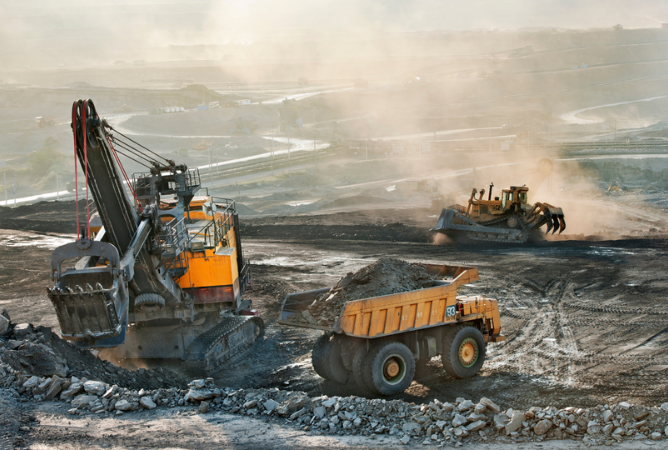
Ontario is taking a significant step toward improving health & safety for mine workers by requiring a large reduction in diesel particulate levels in underground mines, and thereby pushing for decarbonisation in the mining sector.
Last month, Labour Minister Monte McNaughton introduced new legislation aimed at cutting diesel particulates in mines to acceptable levels.
Right now, Ontario allows up to 400 micrograms per cubic metre of air. This is considered one of the highest levels permitted in the world.
However, the new law cuts that level by 70 percent, bringing the number to only 120 micrograms per cubic metre. Any company that does not comply with the mandate could face hefty penalties from the government.
Mr McNaughton believes the measure would benefit many Ontarians working in the mining industry.
“We know that long-term exposure to diesel exhaust while on the job can be a significant cause of bladder and lung cancer, and cardiovascular disease for miners,” Mr McNaughton said.
“Currently, Ontario has the highest diesel exposure limits in Canada. That is why we’re introducing the toughest standards in North America to reduce exposure by 70 per cent and keep our miners safe.”
A positive move forward
Ontarians have long been calling for changes in the amount of permitted diesel particulates in mines.
In November, the trade union United Steelworkers Local 6500 launched a public awareness campaign to urge the government to act. The group wants exposure levels to be reduced to just 20 micrograms per cubic metre of air. This number was based on recommendations from Carcinogen Exposure Canada (CAREX) and the Occupational Cancer Research Centre.
The new law only cuts exposure levels to 120 micrograms per cubic metre. However, the union still considers the passing of the measure as a move in the right direction.
“This is excellent news today. The reduction of the occupational exposure limit by 70 per cent is an awesome start,” Local 6500 President Nick Larochelle said.
“We look forward to continuing working with the ministry to bring that number down to 20 micrograms per cubic metre of air.”
Dangers of diesel particulate exposure
Air pollution remains a significant threat to the health and safety of mine workers. Diesel exhaust exposure, for instance, has been linked to serious illnesses such as cancer.
According to the Canadian Centre for Occupational Health and Safety, diesel exhaust contains a substance called diesel particulate matter (DPM). This is often made up of soot particles, carbon, ash, polycyclic aromatic hydrocarbons (PAHs), metallic abrasion particles, sulfates, and silicates.
Short-term exposure to diesel exhaust can result in coughing, as well as eye, nose, throat, and respiratory tract irritation. In some cases, it can also trigger irritation of the lungs or even an allergic reaction. Some people have reported suffering from lightheadedness, headache, or nausea.
Long-term exposure, on the other hand, can lead to more serious health effects. Diesel exhaust is considered carcinogenic to humans, according to the International Agency for Research on Cancer (IARC). People who are exposed to the substance for long periods have a higher risk of developing lung and even bladder cancer.
Prioritising health and safety
The mining industry is one of the most difficult industries to decarbonise. The nature of the business and its reliance on heavy machinery make it hard for companies to achieve net-zero. However, there are various ways in which mining sites can become more environmentally sustainable.
Some mining companies have started replacing their traditional operations with more environmentally friendly methods. This includes electrifying machinery, equipment, and vehicles where possible and switching power generation sourcing from highly polluting fossil fuels to cleaner renewable energy such as solar and wind.
For example, Accès, a leading partner to mining companies for the provision of light vehicles in Canada, have begun offering light vehicle fleet electrification, namely electric pickup trucks. The company has partnered with Tembo, a global leader in EV conversion kits for light utility vehicles, to supply mining spec EVs. The move will help Accès’s mining clients significantly cut carbon emissions across its mining facilities and decrease the potential exposure to diesel exhaust for its workers.
Visit the VivoPower website for more News and Insights.